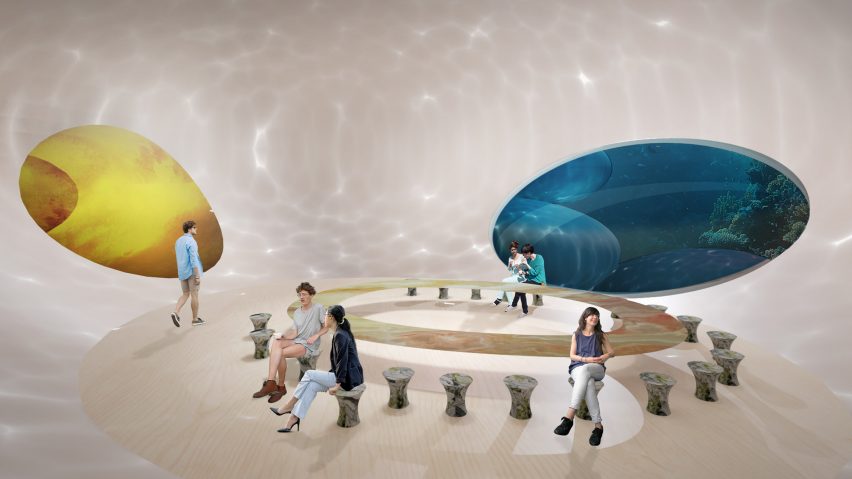
Grimshaw and Farshid Moussavi create metaverse social spaces
Architecture studios Grimshaw, HWKN, WHY and Farshid Moussavi have partnered with metaverse company Pax.world to create a series of virtual hubs informed by the ancient Silk Road.
Each architecture studio designed a metaserai – a concept referring to caravanserai, which were roadside inns on the Silk Road – where users of the metaverse can trade, attend cultural events, and network.
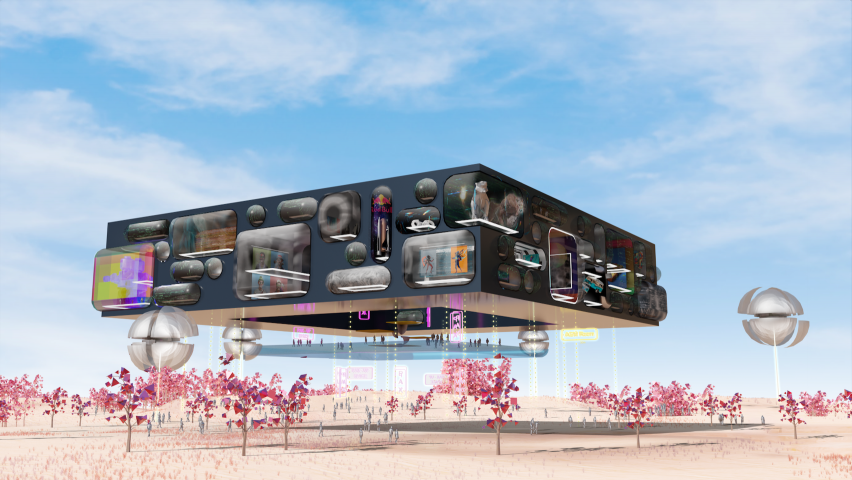
Pax. world founder Frank Fitzgerald began to create spaces in the metaverse during lockdown when he became frustrated with doing business and socialising via teleconferencing.
He launched Pax.world, which claims to be the world's first true virtual society, this month. The platform lets users host events includings concerts, trade shows, lectures, parties and festivals in the virtual Metaserai buildings.
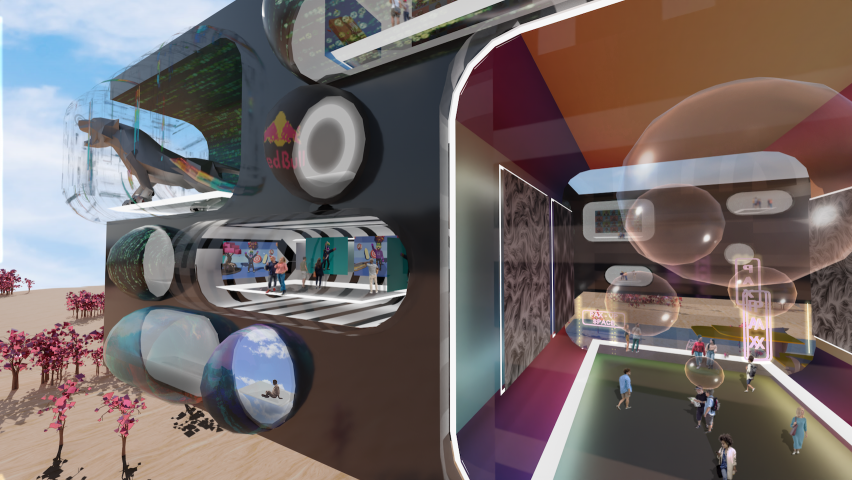
The Metaserai designed by Grimshaw has a rectangular shape and floats above its location with visitors entering the space through spherical gates.
Once inside, their interaction with other users generates a flow of data up through the suspended structure. These interactions create other, bespoke spaces, forming what the studio calls "shape-shifting" architecture, which were generated by a kit of parts based on various human interactions.
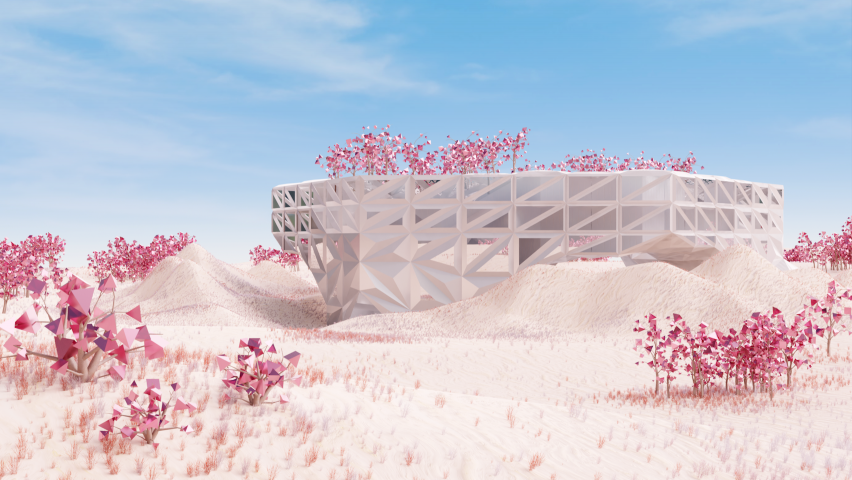
"Experimentation with design, technology and materials is an inherent part of Grimshaw's history and legacy, enabling us to transform the experience and outcomes of our built environment," said Grimshaw partner Keith Brewis.
"Engaging with the metaverse as it matures, and working with Pax.world, we are also experiencing the empowering nature of the digital world: Grimshaw's metaserai acting as a place where users can create rather than consent to their own environments."
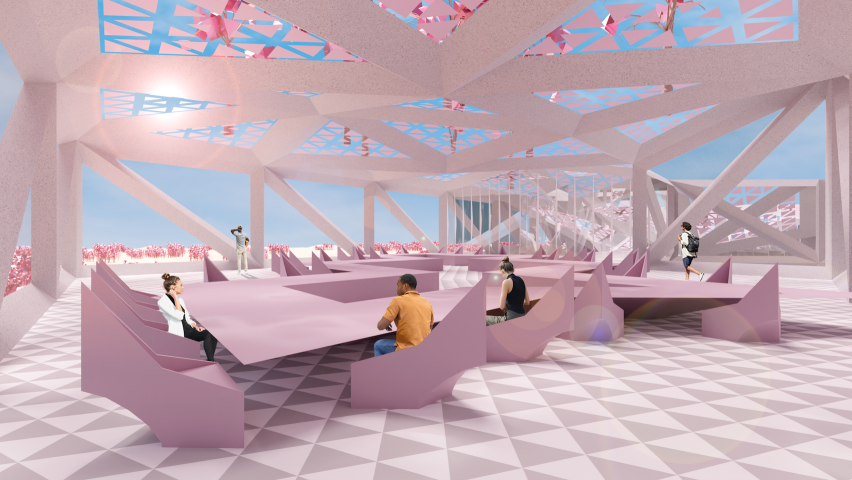
HWKN's created a metaserai named Paxton with a multi-level hexagonal form. Located in the desert, it includes a giant amphitheatre for concerts, wallless galleries for art, meeting rooms that open to the sky, and a rooftop garden with exercise facilities.
"Paxton is a world you choose to enter in order to explore, change, and grow," said Matthias Hollwich, principal and founder of New York architecture firm.
Farshid Moussavi Architecture's metaserai features event spaces arranged around three large circular courtyards, with open views to communal halls. The exterior of the virtual building is mirror-clad, reflecting the surrounding scenery.
WHY designed an interactive blooming garden for its metaserai. Visitors are welcomed into an open plaza with a tree at its centre that grows outside of the roof through a central void.
Curated art galleries, waterfalls, "painted" timber and stone are featured in the space, while floating islands with pools are surrounding the main structure.
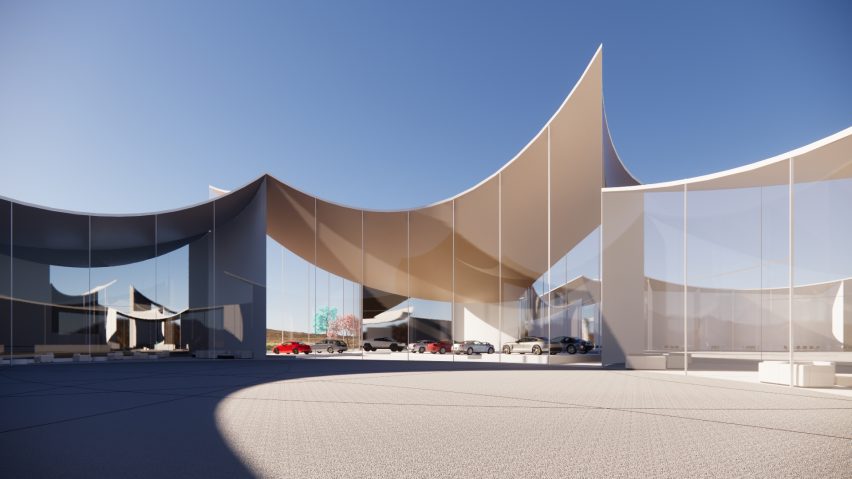
"Our spaces are intended to be a place where people can be and become the most illuminating and imaginative version of themselves," said WHY buildings director Andrija Stojic.
"They visit not only to encounter new worlds, but to immerse themselves in community and collaborate with like-inspired peers," he added.
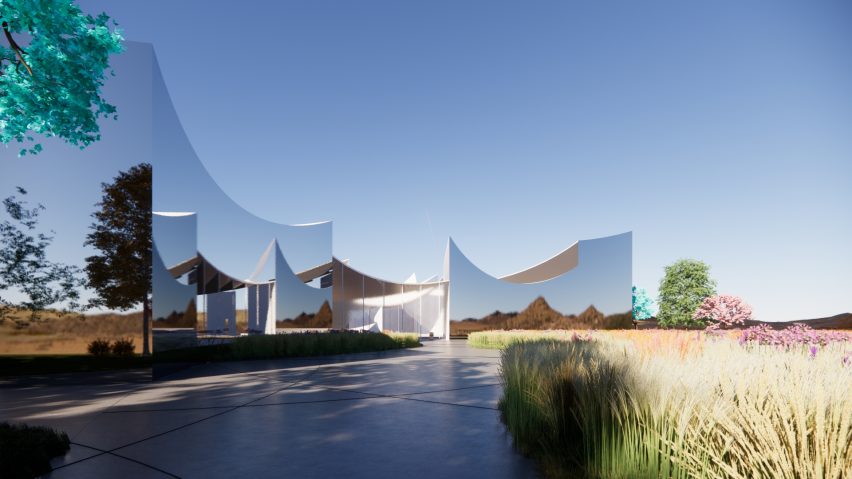
According to Fitzgerald, Pax.world is a fully functioning virtual society governed by DAO (Decentralised Autonomous Organisation) and with an economy built on its $PAXW token.
"Pax.world is the metaverse for grown-ups and as well as creating functionality and governance that will allow people to trade, network and experience culture as never before on a virtual platform," he said.
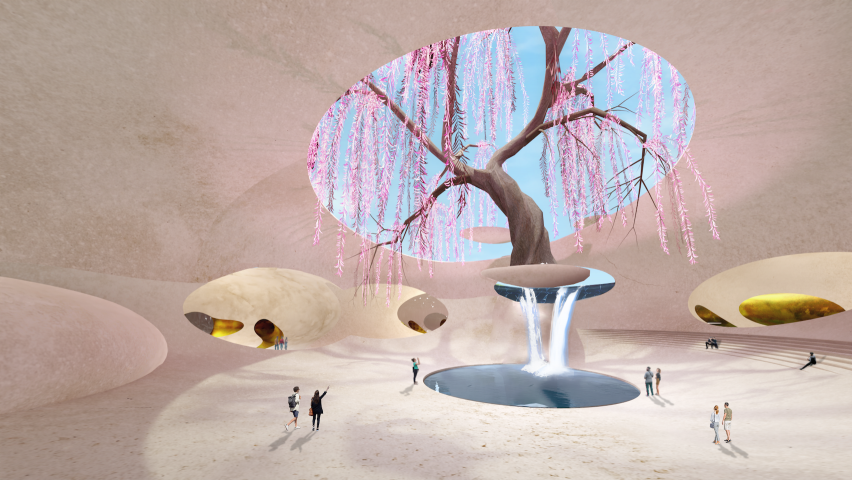
Pax.world is partnering with a series of non-profit organisations and NGOs to develop solutions to issues such as sustainability, democracy, diversity and privacy in the metaverse. Pax.world is now open to landowners and will launch to the public in early 2023.
Large numbers architects and artists are invited to create mind-bending structures in the metaverse. In July this year, metaverse community The Row has launched with 30 virtual properties created by artists including Daniel Arsham, Misha Kahn, and design studio Six N Five.
Photography is courtesy of Pax.world.